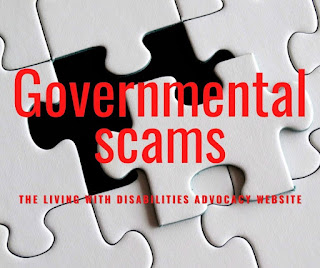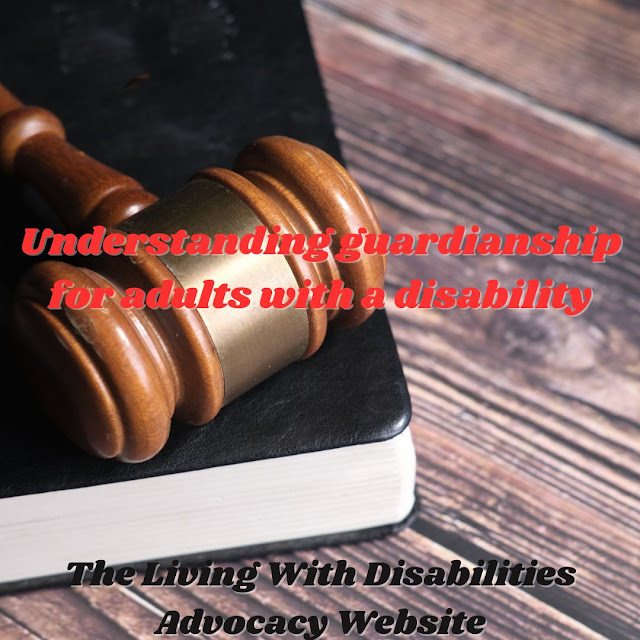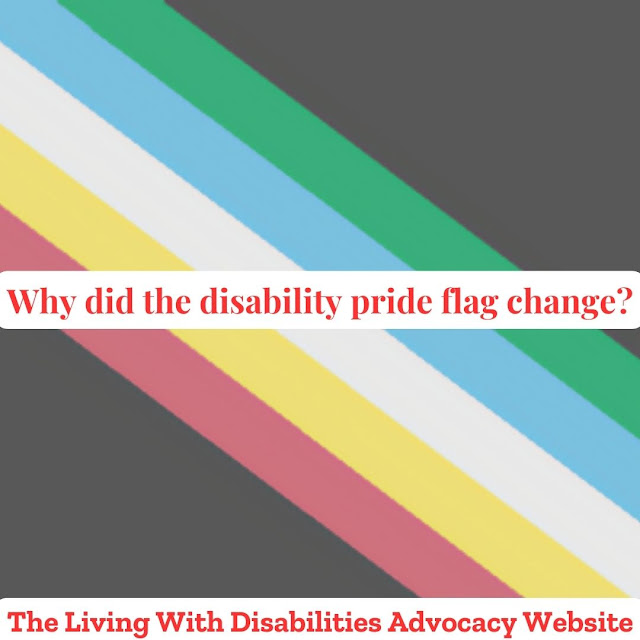Governmental Scams
First, welcome to the Living With Disabilities Advocacy Website. It's run by none other than Katrina Smith, who's a person with a learning disability. Her mission behind Living With Disabilities is to bring awareness to all people with disabilities.
Today Living With Disabilities wants to talk about false governmental scams.
When it comes to living in the disabled community, some people in society will find a way to take advantage of people with disabilities. And that is why it's best to put on our thinking caps and strap them on tight cause it's about staying safe in your community.
Able-bodies will find ways to scam people with disabilities because they think we're not smart. So, it's best to stay on top of your game. Living With Disabilities will share with you what to pay attention to, so don't give out any information.
How to Avoid government impersonator
Scammers will pretend to call from the government office. Like, the Social security Administration or the IRS (Internal Revenue Service) They will even claim to work from the medical insurance. They will use different tactics to get you to believe them. Like, if you don't pay or you refuse to give them your personal information, something negative will happen.
How to spot an impersonator
They often start with calling or sending text messages from someone who says they are from the government agency. They will start giving out their employment ID number to sound formal. And they will act like they have information about you. Like, Name and address. They also will come up with a fake agency name. Like, The national sweepstake bureau and they will give you some excuse as to why you need to send money. Whatever excuse they may build up, pay attention and never fall for them.
Next up is how to avoid their scams.
Never
- Don't wire money or use any type of gift card or cryptocurrency to pay anyone who claims to work for the government. Scammers will ask for you to pay this way because it's hard to get your money back. And once you have given them info on getting money, you won't get your money back.
- Don't personal information out.
- Don't be fooled by the caller ID. your caller ID may show a real government number, or say it's Social Security.
- Don't click on unknown links in unknown email or text messages.
What to do if you get an impersonator
- Don't answer your phone.
- Don't call the number the person gave to you.
- Ignore all calls, emails, and texts.
- Real social security, won't threaten you.
- if you give information out, go to Identitytheft.gov to get steps in how to protect your Identity.
- See the Social security administration on what to do, if you get a person claiming to be them.
- Know that the IRS will not call you about taxes out of the blue.
- if you owe money they will contact you, through the mail.
- The IRS will never ask for you to pay over the phone. They have guidelines.
- The IRS does have a private debt collector that might call you, nevertheless only after you've received two letters concerning your debt: one from the IRS comes after the debt collector.
- The private debt collector work in place of the IRS, they will never ask you to pay over the phone. The IRS has guidance on private debt collectors and answers to regularly asked questions.
- The IRS and debt collector won't request you to wire money or payment through gift cards.
- The IRS and debt collectors won't threaten to arrest you.
Do/Don't
- don't answer the phone, or call the number back.
- don't click on any links. scammers will design their site to steal your information.
- Do report scammer to treasury Inspector General for tax administration at tigta.gov
Medical impersonator
When you thought a scam would be done, it is more especially in the medical field.
What to know about the impersonator
- The real government won't contact asking for your medical insurance number. unless you call 1-800-MEDICARE
- The real government won't call, text, email, or send you a direct message on social media to sell you anything or tell you to pay to get a medical card.
- The real government won't contact asking for your medical insurance number. unless you call 1-800-MEDICARE
- The real government won't call, text, email, or send you a direct message on social media to sell you anything or tell you to pay to get a medical card.
What to do if you get an impersonator
- don't answer your phone.
- don't call them back.
- call 1-800-MEDICARE about your benefits.
- Learn more about medical fraud medicare.gov
How a consumer handled a medical scam.
Why report scam
Who are the targets?
Scammers are talented people and, they target people who they think don't know any better. People with disabilities, Senior Citizens. You have to be the one to outsmart them and always protect yourself.
Work cited page
- don't answer your phone.
- don't call them back.
- call 1-800-MEDICARE about your benefits.
- Learn more about medical fraud medicare.gov
Why report scam
Scammers are talented people and, they target people who they think don't know any better. People with disabilities, Senior Citizens. You have to be the one to outsmart them and always protect yourself.
Work cited page




Comments
Post a Comment